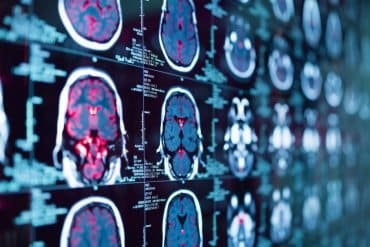A simple questionnaire filled out by depressed patients can help identify whether a particular medication is likely to help them, according to a new study by Yale University researchers published Jan. 20 in the journal Lancet Psychiatry.
Data mined from clinical trials may soon help doctors tailor antidepressant therapy to their patients, the authors say. Currently, only about 30% of patients get relief from the first drug they are prescribed, and it can often take a year or more before doctors find the right medication to alleviate symptoms of depression.
The Yale team analyzed data from a large clinical trial on depression and pinpointed 25 questions that best predicted the patients’ response to a particular antidepressant. Using these questions, they developed a mathematical model to predict whether a patient will respond to Celexa after three months of treatment.
“These are questions any patient can fill out in 5 or 10 minutes, on any laptop or smartphone, and get a prediction immediately,” explained Adam Chekroud, Ph.D. candidate in the Human Neuroscience Lab and lead author of the paper.

The model performed better at predicting whether a patient would get better by using that drug than a group of practicing psychiatrists. The researchers then tested the model by predicting outcomes in a second clinical trial, conducted years later. They found the model worked well in predicting patient responses to similar drugs (Lexapro, as well as a combination of Lexapro and Wellbutrin). However, the model did not predict response to drugs that have a different mechanism in the brain (Effexor and Remeron).
Once more data is analyzed from new and existing clinical trials, predictions about other treatment options will become available, suggested Philip Corlett, assistant professor of psychiatry and senior author of the study.
“And there is no reason why we can’t predict other important outcomes for our patients, like suicide or return to work,” Corlett added.
Source: Bill Hathaway – Yale
Image Source: The image is credited to Sam Falconer and is adapted from the Yale press release
Original Research: Abstract for “Cross-trial prediction of treatment outcome in depression: a machine learning approach” by Adam Mourad Chekroud, MS, Ryan Joseph Zotti, BSc, Zarrar Shehzad, MSc, Ralitza Gueorguieva, PhD, Marcia K Johnson, PhD, Madhukar H Trivedi, MD, Tyrone D Cannon, PhD, John Harrison Krystal, MD, and Philip Robert Corlett, PhD in Lancet Psychiatry. Published online January 20 2016 doi:10.1016/S2215-0366(15)00471-X
Abstract
Cross-trial prediction of treatment outcome in depression: a machine learning approach
Background
Antidepressant treatment efficacy is low, but might be improved by matching patients to interventions. At present, clinicians have no empirically validated mechanisms to assess whether a patient with depression will respond to a specific antidepressant. We aimed to develop an algorithm to assess whether patients will achieve symptomatic remission from a 12-week course of citalopram.
Methods
We used patient-reported data from patients with depression (n=4041, with 1949 completers) from level 1 of the Sequenced Treatment Alternatives to Relieve Depression (STAR*D; ClinicalTrials.gov, number NCT00021528) to identify variables that were most predictive of treatment outcome, and used these variables to train a machine-learning model to predict clinical remission. We externally validated the model in the escitalopram treatment group (n=151) of an independent clinical trial (Combining Medications to Enhance Depression Outcomes [COMED]; ClinicalTrials.gov, number NCT00590863).
Findings
We identified 25 variables that were most predictive of treatment outcome from 164 patient-reportable variables, and used these to train the model. The model was internally cross-validated, and predicted outcomes in the STAR*D cohort with accuracy significantly above chance (64·6% [SD 3·2]; p<0·0001). The model was externally validated in the escitalopram treatment group (N=151) of COMED (accuracy 59·6%, p=0.043). The model also performed significantly above chance in a combined escitalopram-buproprion treatment group in COMED (n=134; accuracy 59·7%, p=0·023), but not in a combined venlafaxine-mirtazapine group (n=140; accuracy 51·4%, p=0·53), suggesting specificity of the model to underlying mechanisms.
Interpretation
Building statistical models by mining existing clinical trial data can enable prospective identification of patients who are likely to respond to a specific antidepressant.
Funding
Yale University.
“Cross-trial prediction of treatment outcome in depression: a machine learning approach” by Adam Mourad Chekroud, MS, Ryan Joseph Zotti, BSc, Zarrar Shehzad, MSc, Ralitza Gueorguieva, PhD, Marcia K Johnson, PhD, Madhukar H Trivedi, MD, Tyrone D Cannon, PhD, John Harrison Krystal, MD, and Philip Robert Corlett, PhD in Lancet Psychiatry. Published online January 20 2016 doi:10.1016/S2215-0366(15)00471-X






